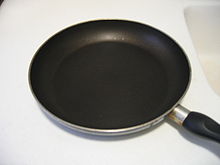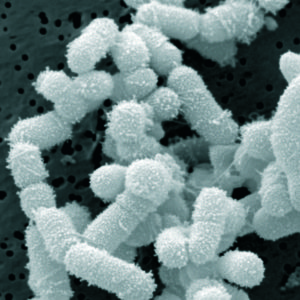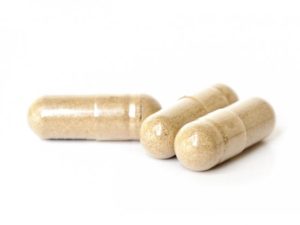 This is rarely mentioned, but there is research showing that commonly used chemicals that we are exposed to, such as bisphenols (BPA, BPS), phthalates, persistent organic pollutants (e.g.flame retardants, nonstick cookware), heavy metals (e.g. lead), and some pesticides (e.g.chlorpyrifos, glyphosate), all have an impact on the gut microbiome in animals and humans.
This is rarely mentioned, but there is research showing that commonly used chemicals that we are exposed to, such as bisphenols (BPA, BPS), phthalates, persistent organic pollutants (e.g.flame retardants, nonstick cookware), heavy metals (e.g. lead), and some pesticides (e.g.chlorpyrifos, glyphosate), all have an impact on the gut microbiome in animals and humans.
For example, these chemicals may alter levels of certain microbial species, or alter the variety (diversity) and type of species in the gut, or increase intestinal inflammation. These alterations are associated with health effects, and the effects may be different depending on the stage of life. Yikes!
The human gut microbiome is the huge and complex community of microbes (fungi, bacteria, viruses) that live in our intestines and play important roles in our health. Trillions of microbes, hundreds of species. The presence of certain microbial species in the gut are associated with health, and the presence of certain other species are associated with disease. We know that what we eat and drink, whether we exercise, and other lifestyle factors can influence the gut microbes, but it appears we also need consider exposure to chemicals in the environment around us.
A recent study by University of Illinois researchers reviewed the environmental chemical and microbiome research, and found that many chemicals have an effect on the gut microbiome. They point out that humans are constantly exposed to hundreds of chemicals in the environment, and many get into humans (through inhalation, ingestion, absorption through the skin). Currently more than 300 environmental chemicals and their metabolites have been measured in humans (e.g. in blood and urine).
Many of these chemicals are endocrine disruptors, and many are associated with adverse health effects, including male and female reproductive and developmental defects, type 2 diabetes, cardiovascular effects, liver disease, obesity, thyroid disorders, and immune effects.
By the way, gut microbiome effects are currently not considered by the EPA when regulating chemicals.
From Science Daily: Environmental contaminants alter gut microbiome, health
The microbes that inhabit our bodies are influenced by what we eat, drink, breathe and absorb through our skin, and most of us are chronically exposed to natural and human-made environmental contaminants. In a new paper, scientists from the University of Illinois at Urbana-Champaign review the research linking dozens of environmental chemicals to changes in the gut microbiome and associated health challenges. ...continue reading "Some Common Chemicals Alter the Gut Microbiome"

 There have been concerns for years about the food additive titanium dioxide. This is because it may be in nanoparticle form, and
There have been concerns for years about the food additive titanium dioxide. This is because it may be in nanoparticle form, and  Good news today! I am happy to report that I (and family members) are now in our 8th year of successfully using probiotics to treat and conquer sinusitis. This includes both chronic sinusitis and regular sinus infections. Yes! This means no antibiotics or any other antibacterial has been used in more than 7 years.
Good news today! I am happy to report that I (and family members) are now in our 8th year of successfully using probiotics to treat and conquer sinusitis. This includes both chronic sinusitis and regular sinus infections. Yes! This means no antibiotics or any other antibacterial has been used in more than 7 years. Once again
Once again  The results of a
The results of a  Researchers in Canada found that sunlight (or UVB light) on the skin changes the gut microbes (gut microbiome), especially in people with lower levels of vitamin D, that is, who are vitamin D deficient. UVB (Ultraviolet B light) exposure increased beneficial gut microbe diversity and richness in these people, as well as increasing their vitamin D levels. However, people who had been taking vitamin D supplements prior to the study, and who had sufficient vitamin D levels, did not have significant gut microbiome changes.
Researchers in Canada found that sunlight (or UVB light) on the skin changes the gut microbes (gut microbiome), especially in people with lower levels of vitamin D, that is, who are vitamin D deficient. UVB (Ultraviolet B light) exposure increased beneficial gut microbe diversity and richness in these people, as well as increasing their vitamin D levels. However, people who had been taking vitamin D supplements prior to the study, and who had sufficient vitamin D levels, did not have significant gut microbiome changes. Researchers are starting to raise concerns about routine daily intake of probiotics for "gut health". Much is still unknown, but problems are starting to appear. A healthy gut contains hundreds of species (bacteria, fungi, viruses), and taking megadoses of a few species (a probiotic supplement) can overwhelm the normal gut microbial community. A healthy gut is one with a greater diversity of species, not just some species.
Researchers are starting to raise concerns about routine daily intake of probiotics for "gut health". Much is still unknown, but problems are starting to appear. A healthy gut contains hundreds of species (bacteria, fungi, viruses), and taking megadoses of a few species (a probiotic supplement) can overwhelm the normal gut microbial community. A healthy gut is one with a greater diversity of species, not just some species. We have trillions of bacterial cells from thousands of different strains of bacteria living in our gut!
We have trillions of bacterial cells from thousands of different strains of bacteria living in our gut!  A really interesting study found that in humans, taking
A really interesting study found that in humans, taking